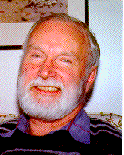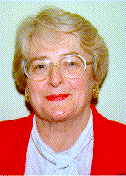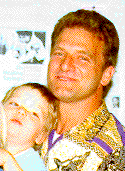 Peter Harkness was born in Iroquois Falls, Ontario, in 1936. He met his future wife, Rose Mae Kant, in
kindergarten there. He went to Kingston, Ontario, where he graduated from Queen's University in 1959 with a degree
in electrical engineering. He and Rose Mae were married in 1959, two months after Peter graduated.
Peter Harkness was born in Iroquois Falls, Ontario, in 1936. He met his future wife, Rose Mae Kant, in
kindergarten there. He went to Kingston, Ontario, where he graduated from Queen's University in 1959 with a degree
in electrical engineering. He and Rose Mae were married in 1959, two months after Peter graduated.His first job in international development started in 1968 at the Quaker Centre in Rasulia, in central India.
"British Friends had started work in that area around 1850, and around 1900 there was a famine in the area and a lot of children were left without parents. They had to be trained in some kind of trade, so Quakers developed a training centre for agriculture and carpentry at Rasulia," Peter explained.
They arrived in 1968 with their twin boys, Andrew and Colin, who were two and a half at the time.
"At Rasulia, I worked on the well program and on small enterprise development, and Rose Mae started a nursery school in the Centre."
Peter and Rose Mae worked in Rasulia for two and a half years, under the auspices of Canadian Friends Service Committee (CFSC). Their daughter Heather was born in India in 1970. Christine was born in 1971 after their return to Toronto. In 1972, Peter began working for the Canadian International Development Agency (CIDA) in Ottawa. He worked for CIDA from 1972 until his retirement in 1993. In addition to his work in Ottawa, he also went overseas for the Agency.
"My posting in Ghana from 1975 to 1977 was as First Secretary, Development for the Canadian High Commission (a Commonwealth embassy). I was responsible for half of our development projects there."
"When I returned to Canada, it was also an exciting time at CIDA. This was the time that Lewis Perinbam was starting the Non-Governmental Organization program of CIDA on the course to what it eventually became (a significant part of Canada's development efforts)."
 Rose Mae Harkness was born in Iroquois Falls in 1936. She went to the University of Toronto, where
she earned a B.A. in history in 1957 while her future husband Peter went to Kingston to study engineering at Royal
Military College.
Rose Mae Harkness was born in Iroquois Falls in 1936. She went to the University of Toronto, where
she earned a B.A. in history in 1957 while her future husband Peter went to Kingston to study engineering at Royal
Military College.She and Peter discovered Friends around the same time.
"The first Quaker meeting we went to was an all-day silent retreat at the home of Elizabeth Oxlade and Ted Hopkins in Kingston. After that, we began attending Thousand Islands Monthly Meeting in Kingston, and when we moved to Toronto, we went to meeting there."
In 1966 they joined Toronto Monthly Meeting. In 1968 they left for Rasulia, India to work on a program of Canadian Friends Service Committee, which was funded by British and Australian Friends.
"The program was being taken over by Indians themselves, and passing out of the hands of expatriates," Rose Mae said. "They had formed an all-Indian Governing Body, and hired an Indian co-ordinator . This was a very i nteresting period to be at the Friends Rural Centre."
They returned to Canada in 1971, but went overseas again in 1975, this time to Ghana. On their return from Ghana, Rose Mae started a Master's degree program in development at Carleton University, at the Norman Paterson School of International Affairs.
"I had a CIDA scholarship to study the impact of a water project in northern Ghana on village women in the area. It was one of the earliest pieces of work on women and development at the Norman Paterson School. To carry out research I made two trips to Ghana to interview village women in Bolgatanga district."
Before she finished her thesis, she was hired by a firm which was putting together a proposal to evaluate the water project in Ghana, and the role of women in the project.
When Rose Mae heard there was going to be an outside competition for positions in Anglophone Africa at CIDA, she applied, and in 1984 was hired. She first worked in the Africa Branch on programs in Kenya, Ethiopia, and Zambia and later in the Policy Branch.
"I went to Zimbabwe in 1989, and Peter came with me . He took a leave of absence from CIDA, and worked for another agency in Zimbabwe."
Although their children did not go with them to Zimbabwe, they were able to visit and to appreciate the beauty of the country and its people.
"The problems in the world remain immense and any individual effort rather puny in comparison, but there is no doubt that it is essential to continue to seek solutions. Perhaps signs in our four children of understanding and tolerance for international differences make it all seem worthwhile."
 Steve Abbott was born in Belfast, Northern Ireland, in 1951, to Ed and Vivien Abbott, medical
doctors from Canada. Ed was doing his surgical residency in Belfast. In 1952, the family went to India
where Ed and Vivien were doing village development, medicine, well digging and sanitation work in
Barpali in Orissa, a project sponsored by American Friends Service Committee, and later to Rasulia,
where they worked on a similar project sponsored by Canadian Friends Service Committee (CFSC).
Steve Abbott was born in Belfast, Northern Ireland, in 1951, to Ed and Vivien Abbott, medical
doctors from Canada. Ed was doing his surgical residency in Belfast. In 1952, the family went to India
where Ed and Vivien were doing village development, medicine, well digging and sanitation work in
Barpali in Orissa, a project sponsored by American Friends Service Committee, and later to Rasulia,
where they worked on a similar project sponsored by Canadian Friends Service Committee (CFSC).Steve returned to Canada with his family in 1965 and finished high school in suburban Toronto. In 1970, he enrolled at the University of Waterloo in Mechanical Engineering. He finished his degree in 1978, and soon put to use his abiding interest in sustainable development and appropriate technology.
In 1974, Canadian Friends Service Committee sent Steve to Costa Rica to help finish building a clinic in Santa Elena, two kilometres from the Quaker settlement of Monte Verde. He returned there the next two summers.
He completed a Master's degree emphasizing solar engineering topics in 1981, and went to Ghana to work on a water project sponsored by the Canadian International Development Agency in 1983. "The project had 2,000 bore holes which had been fitted with Canadian pumps," Steve said. "While the original goal of the project was health education, and site and drainage improvement, we wound up debugging the maintenance system for the hand pumps as well."
Steve worked there until 1985, and in the village of Bolgatanga in the far north of Ghana, he met Andrea Marx, a German nurse who was working with the Christoffel Blinden Mission, a mission to blind people. In September, when their contracts were over, they went to Kuesterdingen, Germany in September, and celebrated their marriage with both families.
"As soon as we returned to Canada we were asked to go to Nepal to work on an integrated development project, where I started well digging, and demonstrated water-seal latrines - following in Dad's footsteps."
Andrea returned to Germany briefly in 1988 for the birth of their first child, Christopher, and the family returned to Rowanwood, a residential co-operative in Orillia, Ontario, with the elder Abbotts. Their daughter Corrie was born in 1991 and their son Kevin in 1992. In 1993, the family moved to Ottawa, where Steve had a job with Cowater International, a development consulting firm. In the summer of 1994, Steve took a leave of absence to do a major task for Oxfam UK: installing a water supply system in a Rwandan refugee camp north of Goma, Zaire, a task he recounted in the May/June 1995 issue of The Canadian Friend.
Lack of water and the presence of diarrhoeal diseases were killing thousands of refugees. Steve had driven past bodies and scenes of misery in Kibumba camp when he first arrived. He described his relief after they had gotten safe water flowing to the refugee camp.
"There was a group of 8 or 10 kids laughing and playing together as they washed clothes at the tubs. I could not believe that these could be the same people that I had seen almost eight weeks before at Kibumba."